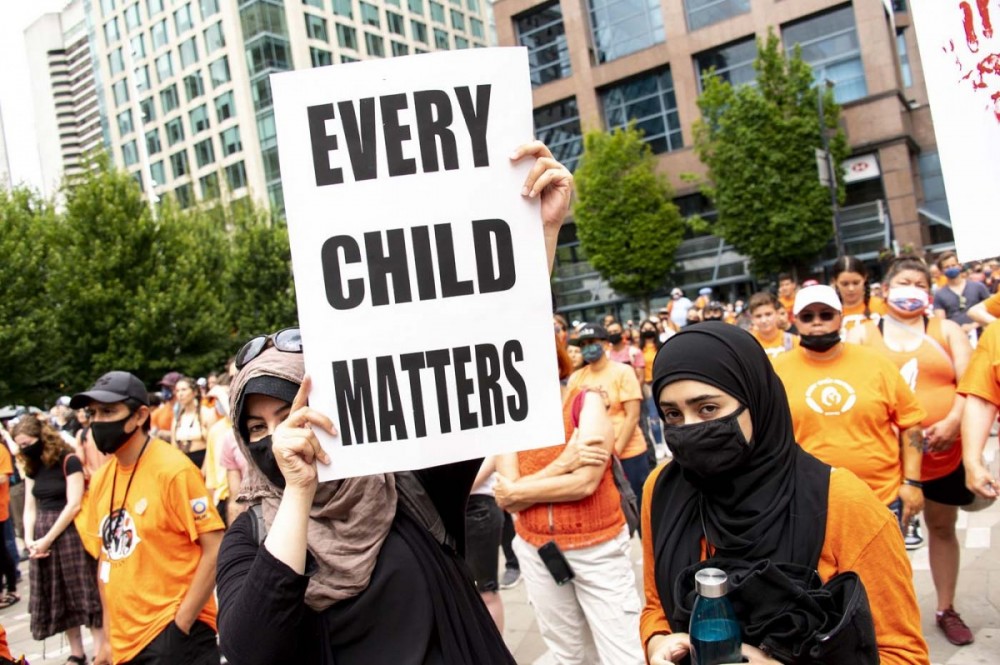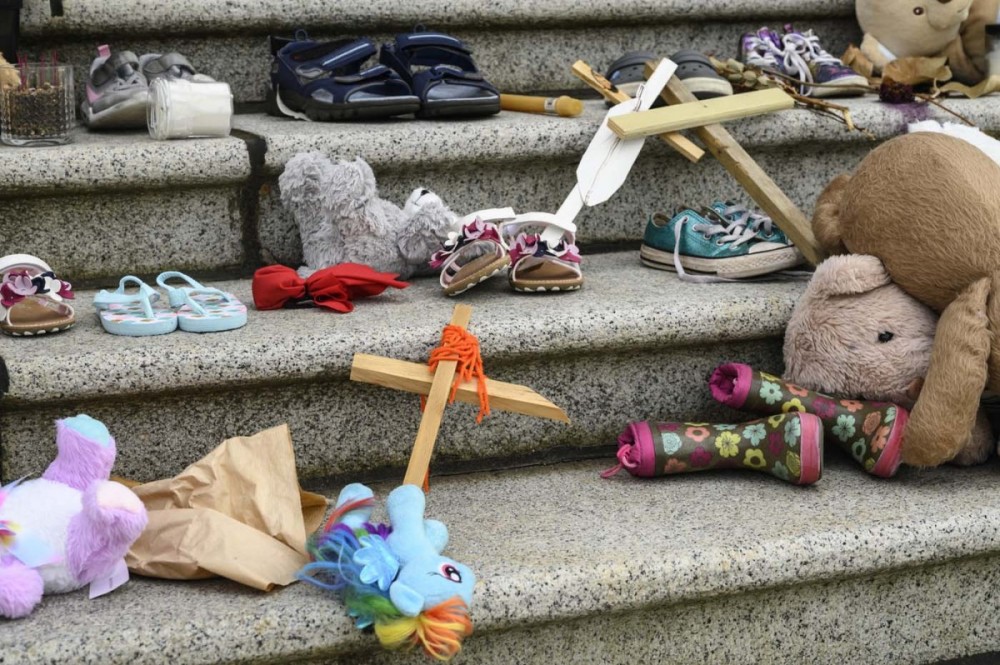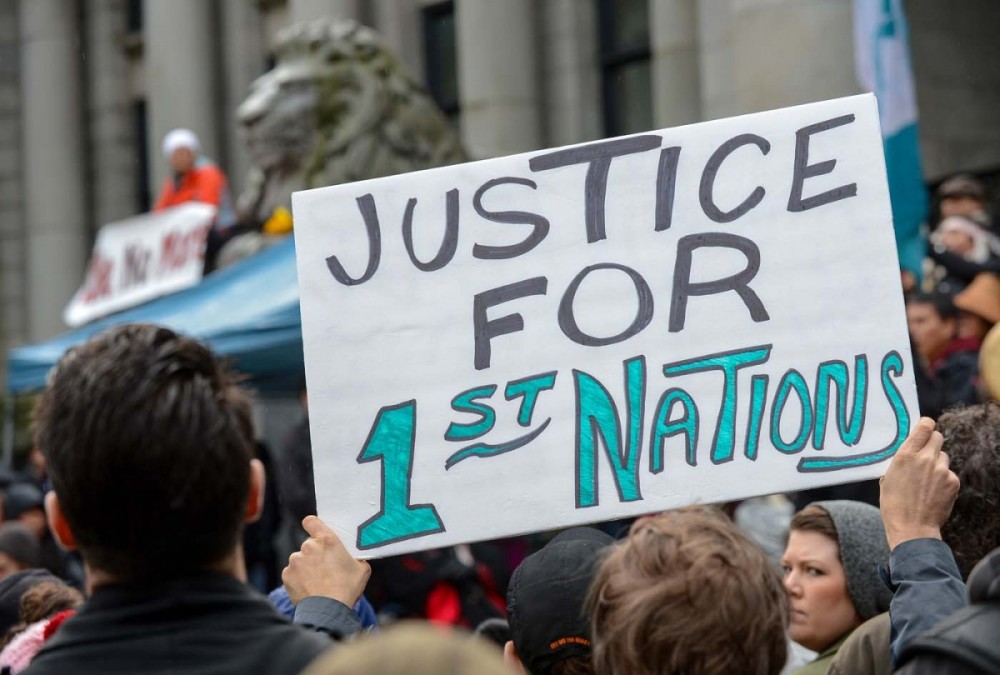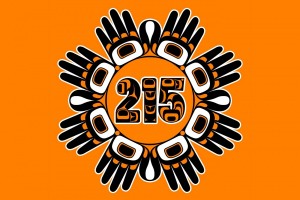The following are excerpts from Honouring the Truth, Reconciling for the Future: Summary of the Final Report of the Truth and Reconciliation Commission of Canada:
“At the Northern National Event in Inuvik, Northwest Territories, Maxine Lacorne said, ‘As a youth, a young lady, I talk with people my age because I have a good understanding. I talk to people who are residential school Survivors because I like to hear their stories, you know, and it gives me more understanding of my parents. . . . It is an honour to be here, to sit here among you guys, Survivors. Wow. You guys are strong people, you guys survived everything. And we’re still going to be here. They tried to take us away. They tried to take our language away. You guys are still here, we’re still here. I’m still here.’”
“Many spoke to honour the memory of relatives who have passed on. Simone, an Inuk Survivor from Chestereld Inlet, Nunavut, said, ‘I’m here for my parents — Did you miss me when I went away? Did you cry for me? — and I’m here for my brother, who was a victim, and my niece at the age of five who suffered a head injury and never came home, and her parents never had closure. To this day, they have not found the grave in Winnipeg. And I’m here for them first, and that’s why I’m making a public statement.’”
As the commission’s summary says, “Without truth, justice, and healing, there can be no genuine reconciliation. Reconciliation is not about ‘closing a sad chapter of Canada’s past,’ but about opening new healing pathways of reconciliation that are forged in truth and justice.
“We are mindful that knowing the truth about what happened in residential schools in and of itself does not necessarily lead to reconciliation. Yet, the importance of truth telling in its own right should not be underestimated; it restores the human dignity of victims of violence and calls governments and citizens to account. . . . Without truth, justice is not served, healing cannot happen, and there can be no genuine reconciliation between Aboriginal and non-Aboriginal peoples in Canada.”

PHOTOGRAPH: JOSHUA BERSON
On this first National Day for Truth and Reconciliation, Our Times is pausing to honour the over 150,000 Indigenous children who, between the ages of four and 16, were forced to attend residential schools. We honour the thousands among them who died or disappeared, those who survived and continue to live with all that was inflicted upon them, those for whom the burden was or is too big to carry, and all their families and communities.
But we are well aware pausing to reflect is not enough.
Please be sure to read the full Summary of the Final Report of the Truth and Reconciliation Commission. And please see this list below, compiled by the BC Federation of Labour, for seven actions non-Indigenous people can take to work together for Reconciliation:
1. Read the Truth and Reconciliation Commission of Canada's Reports and Calls to Action.
2. Familiarize yourself with the United Nations Declaration on the Rights of Indigenous Peoples.
3. Sign on to the Change.Org petition created by BC Teachers' Federation (BCTF) members Rick Joe and Peggy Janicki.
4. Find out what First Nations Territory you reside on and make a point of acknowledging it.
5. Understand the symbolism of the orange shirt.
6. Read Indigenous authors and watch Indigenous movies, buy Indigenous-made gifts, listen to podcasts and follow Indigenous news sources. Some ideas here.
7. Create a Back Pocket Reconciliation Plan.
For another great resource on reconciliation, this one especially for youth, see Spirit Bear’s Guide to the Truth and Reconciliation Commission of Canada Calls to Action.
So you know, the Tk'emlúps Nation has invited everyone to participate in the Secwépemc Honour Song at 2:15 p.m. Pacific Time on September 30.
Let us all commit to keeping Reconciliation front of mind on and beyond September 30.

PHOTOGRAPH: JOSHUA BERSON
In 1966, Buffy Sainte-Marie sang her song "My Country 'Tis of Thy People You're Dying" on Pete Seeger's Rainbow Quest TV show. She is singing about the United States, but she could just as easily be singing about Canada. Please also see these powerful musicians.












